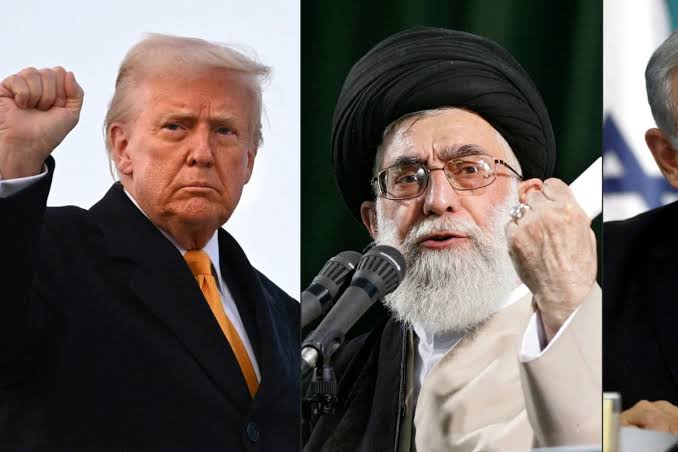
Mohamed Garba
Iran has issued its starkest warning yet, telling the United States that any military involvement in its escalating conflict with Israel would trigger “an all-out war” across the region.
As cross-border attacks between Iran and Israel entered their sixth day, Iranian Foreign Ministry spokesman Esmaeil Baghaei revealed on Wednesday that “any American intervention would be a recipe for an all-out war in the region.”
Tensions have soared after President Donald Trump signaled a possible ramp-up in US involvement, deploying additional warplanes and dispatching the USS Nimitz aircraft carrier to the region. Trump, speaking via Truth Social, claimed the US could “easily assassinate” Iranian Supreme Leader Ali Khamenei but stopped short of issuing an explicit threat. “We know exactly where the so-called ‘Supreme Leader’ is hiding… but we’re not going to take him out — at least not for now,” Trump wrote.
In Tehran, Khamenei responded defiantly, warning Washington that any direct military action would bring “irreparable damage” to the US. “This nation will never surrender,” he said in a televised speech.
The Israeli government, meanwhile, struck back with force overnight. In what the Israeli military described as an effort to cripple Iran’s nuclear ambitions, airstrikes targeted weapons manufacturing facilities, including two key centrifuge production sites in Karaj and Tehran. The International Atomic Energy Agency (IAEA) confirmed both locations had been hit, noting destruction of buildings where advanced centrifuge components were developed and tested.
In retaliation, Iran unleashed another wave of missile attacks, claiming its hypersonic Fattah-1 missiles had rocked Tel Aviv. The Islamic Revolutionary Guard Corps (IRGC) said this was the 11th phase of what it called “Operation Honest Promise 3.” Iranian media reported the missiles repeatedly struck civilian shelters in the commercial hub.
Israeli authorities said dozens of drones and multiple missile barrages were launched toward its territory overnight, most of which were intercepted. Still, hospitals in Tel Aviv treated at least 94 people for injuries. Fires broke out across several neighborhoods due to direct hits and falling debris.
Al Jazeera’s Nour Odeh, reporting from Amman, Jordan, described “a relentless escalation” and noted that central and northern Israel were particularly hard-hit. On the ground in Tehran, correspondent Tohid Assadi said the mood was tense and increasingly desperate, with residents fleeing the capital amid fears of further strikes.
Iran’s military claimed additional successes, including shooting down an Israeli Hermes surveillance drone over Isfahan and destroying an Israeli F-35 fighter jet near Varamin, south of Tehran.
The US has since closed its embassy in Jerusalem through Friday, citing the volatile security environment. Thousands of foreign nationals have fled Iran and Israel, including more than 700 Chinese citizens and over 700 others who crossed into Armenia and Azerbaijan, according to official tallies.
Casualties continue to mount. A Washington-based Iranian rights group estimates over 1,300 people have been wounded and at least 585 killed in Israel’s ongoing assault, including 239 civilians. Iran’s attacks have reportedly killed at least 24 people in Israel.
World leaders, including those from Russia, China, and the European Union, have expressed grave concern. The possibility of a broader war drawing in US forces and regional powers has raised alarms not seen since the 2003 Iraq invasion.
